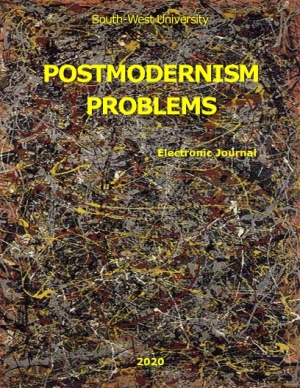Подложености самооценка за риск от дискриминация и социално изключване по отношение на достъп до обществени блага, медии, здравеопазване и заетост
Exposure to and Self-Perceptions of the Risk of Discrimination and Social Exclusion in Access to Public Goods, Media, Healthcare and Employment
Author(s): Svetlana D. Hristova-Vladi, Valentina MilenkovaSubject(s): Social Sciences, Sociology, Ethnic Minorities Studies
Published by: ЮГОЗАПАДЕН УНИВЕРСИТЕТ »НЕОФИТ РИЛСКИ«
Keywords: social exclusion; discrimination; integration; employment; public services; media; healthcare; Roma
Summary/Abstract: This paper examines the dimensions of social exclusion and the elements of self-perception of discrimination in access to public goods, employment, and in the media, which is juxtaposed with the priorities of the Bulgarian National Roma Integration Strategy (NRIS). The findings are based on the "National representative sociological survey for identifying and elaborating profiles of groups and communities most affected by the risk of discrimination, such as the Roma" carried out in 2017 by "BG ASSIST LTD" and a group of scientific researchers commissioned by the Commission for Protection against Discrimination in Bulgaria. The sample consists of 3,600 individuals aged 18 or over. The ethnic distribution of the respondents is as follows: 2,985 persons of Bulgarian ethnicity, 299 of Turkish ethnicity, 246 of Roma ethnicity, and 69 of another ethnicity. The paper shows the contrast between a variety of quality indicators and the priorities of the NRIS. Based on the data obtained, the risk of discrimination among the Roma and other ethnic groups in Bulgaria is tracked in a comparative manner in major public spheres. The survey results demonstrate that the most vulnerable people in the country are those without health insurance, residing in hard-to-reach settlements, low-qualified and unemployed individuals, people with disabilities, multi-member families and single parents; these categories indisputably include a solid share of Roma. Nevertheless, as the results show, not all Roma and arguably not only Roma are the most disadvantaged and marginalized individuals in Bulgarian society. This study's outcomes are related particularly to profiling the groups at risk, allowing critical linkages between the empirical data and ways of improving equal opportunities and non-discrimination policies. On the part of the NRIS, the paper calls for identifying adequate measures and a balanced approach to political engagement with the planning process in the coming years.
Journal: Проблеми на постмодерността
- Issue Year: 10/2020
- Issue No: 3
- Page Range: 364-388
- Page Count: 25
- Language: Bulgarian

